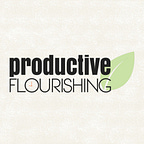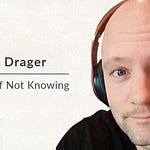Laurence McCahill is the co-founder of The Happy Startup School, a global community that’s now 100,000 people strong. He joins Charlie today to discuss the idea of the “happiness trap,” a belief that many entrepreneurs have that they can either make money, do good, or be happy, but not all three at the same time. They also discuss the productive benefits of taking time out.
Key Takeaways:
[4:50] - Laurence and his partner started The Happy Startup School back in 2013, with the purpose to get people to think about not only the money side of their business, but what’s driving them personally and what kind of impact they want to have. It’s about aligning the need to make money, stay well, and make a difference. Their model is a venn diagram with three circles: money, purpose, and happiness. Ideally, people would be in the intersection of all three circles for a healthy balance.
[7:40] - Many people have the idea that you can be productive or you can take care of yourself. They’re not mutually exclusive! If you view being productive as only doing the things that make money, you’ll miss out on a lot of other aspects of life (family, community involvement, etc). You can also easily get caught up in work, and sometimes, to be most productive there, you may need to walk away and clear your head every once in a while.
[10:30] - In addition to taking care of ourselves because it’s the right thing to do, there are also economic arguments to support that. Laurence references The Lazy Guru and some of their meditation principles. When you create space to look after yourself, amazing things happen. But if you don’t give yourself a chance to go there, you won’t know.
[12:10] - Three insights from The Lazy Guru are 1) Creating space with no purpose - put faith in space, 2) The concept of Beditation - the idea of just sitting in bed, and 3) The thundering herds of “shoulds” - the things we place on ourselves because we feel like we should be doing them. For the third point, these “shoulds” only have power if we accept them to be valid or relevant for our situations.
[14:20] - Especially if you’re running a business, you may look at your competitors and think you should be doing the same things they’re doing. We assume that these things are working for them, and they may actually not be. You have to think about what is relevant for you and your business, and also look for evidence that whatever actions your competitors are taking are actually working for them.
[16:05] - Along with the Happiness Trap model, there are four different archetypes that describe where people fit into the venn diagram. The first is the rat racer, or someone who is fully in the money zone. The purpose-seeker is someone who is doing work that makes them happy, but there’s something missing and they’re still trying to find their purpose. The slave is someone who has found the money and the purpose, but they’re often putting others before themselves and working long hours so their self-care isn’t a priority. The last archetype is the idealist. Idealists usually have a negative relationship with money. You may flip-flop between some of them depending on the day.
[20:40] - There are a lot of people in places that are growing who are very purpose-driven, but the large majority of people are still disengaged in their work and stuck in the rat race so that purpose and their own well-being becomes a luxury. There is a myth (maybe influenced by the Protestant work ethic) that our happiness comes as a byproduct of our work. When you let that go and change your mindset, you can start to find a better balance.
[24:20] - Charlie talks about Plato’s allegory of the cave of deception/illusion. In life, it is constant work to get out from underneath all the societal “shoulds” that push you back into the same habits. In Laurence’s work, he focuses on the science of happiness and non-violent communication to help break the cycle of the cave and focus on the needs to make the business thrive in the long term.
[28:00] - Businesses are meant to solve human aims, not necessarily follow metrics of other businesses. It’s important to build your company on things and ideals that motivate you and are nourishing for you. This can get tricky when you start talking about sales, but there are healthy ways to sell. When you believe in your product and it embodies your values, it becomes more about sharing the product.
[33:21] - What are the three biggest challenges Laurence has seen in his community as people try to find alignment? The first is knowing where to start - think big, start small. The second thing is that many of these people are alone, or in a world that’s very different than the one they want to be in. The people around them aren’t necessarily supportive of what they want to do. The third is the unknown unknowns - there are so many things you don’t know as you’re starting out in business. Embrace everything as a chance to learn.
[36:35] - When starting a business, resilience is more important than talent. If you have high resilience, it’s easier to learn from your experiences as you go. Laurence talks about equanimity, or the idea of how you react to the high and lows of business. How you handle rejection is important in how you will move forward.
[40:55] - Laurence’s business partner is actually an old school friend, which has been a real strength for the business. But they do face some challenges in their business. One big challenge is building a movement and a business at the same time. Another challenge is the events they put on, though they aren’t sustainable year-round. They’ve had to balance the events with building their online community. The last challenge is knowing how big they want to get, or how big they can get and still effectively share their message. Right now, they are operating with a small team that makes a big impact.
[46:30] - Charlie and Laurence talk more about the idea of a small team and a big impact. In any business, it’s important to consider the impact you want to have, and how big your business needs to be to make that happen.
[49:35] - Another thing to keep in mind when building a business on happiness is to remember that when you’re looking at other businesses, they are curated experiences. When you’re looking for evidence of what’s working, realize you’re getting a curated experience and you may need to dig a little deeper to figure out what else they might have had to go through to get there. That’s why at The Happy Startup School they share so much in their writing, so people know the ups and downs and it helps to build trust in their brand.
[51:53] - Laurence’s invitation for listeners is to take some time out to look after yourselves. When you just take time for yourself, with no intention or purpose behind it, you can create the space to let your thoughts and ideas come.
Mentioned in This Episode:
The Writer’s Process, by Anne Janzer
The Lazy Guru’s Guide to Life, by Laurence Shorter
Insanely Gifted, by Jamie Catto












